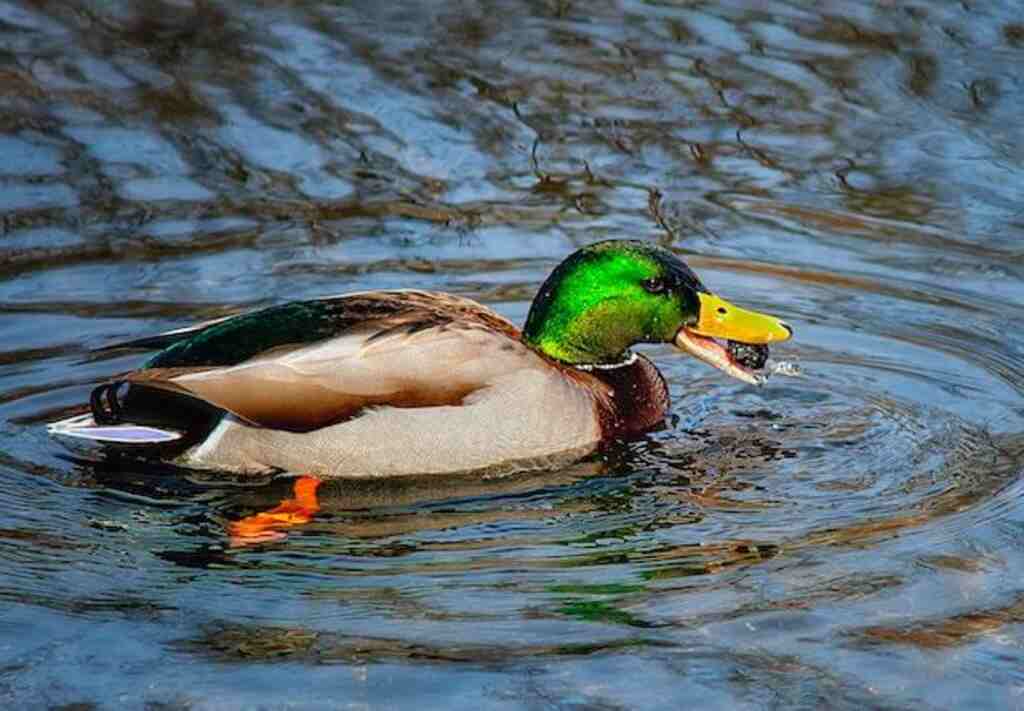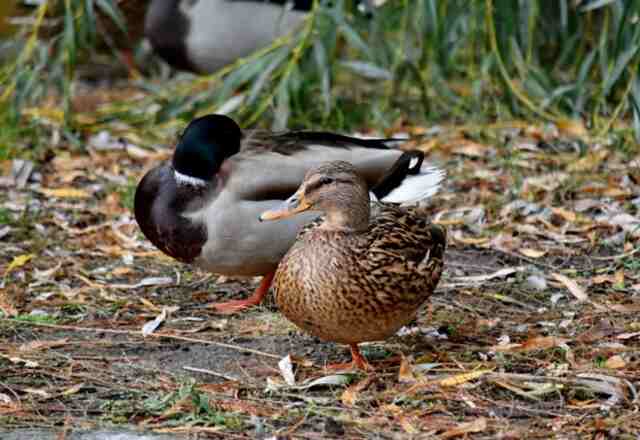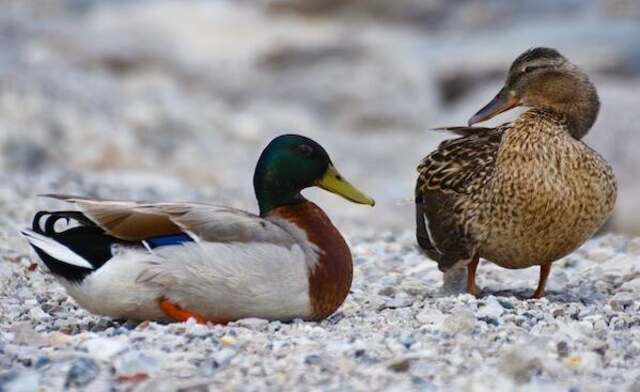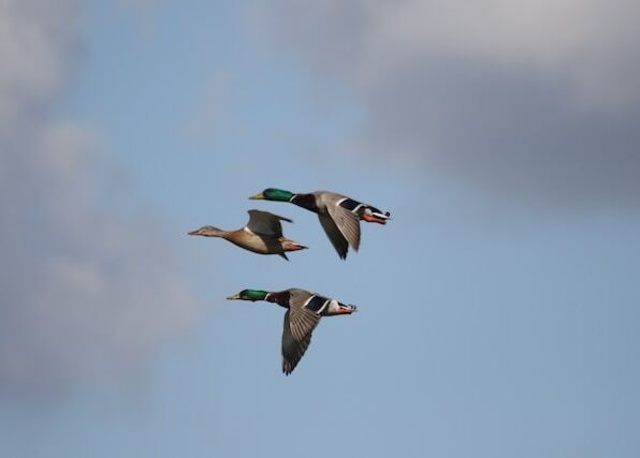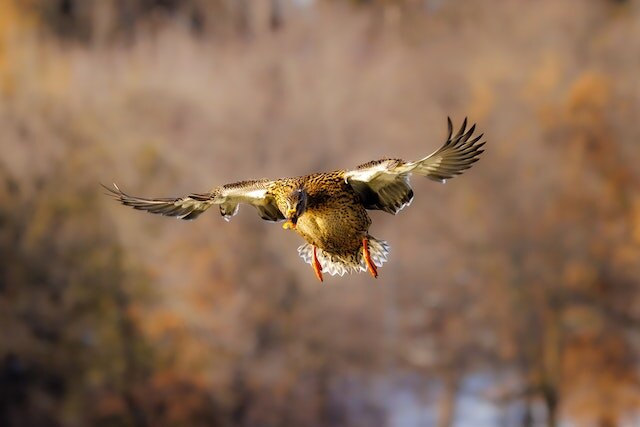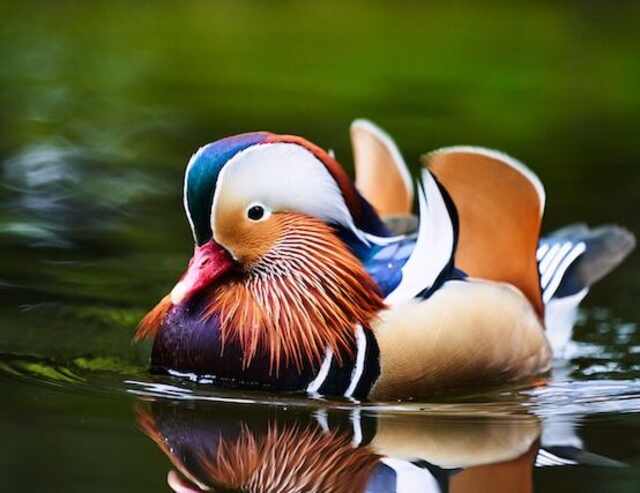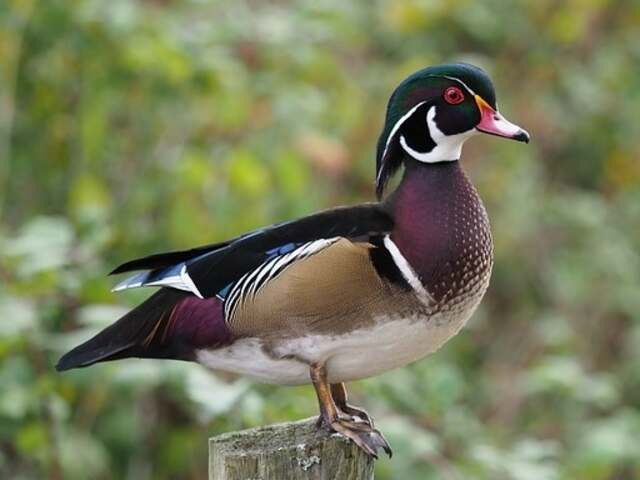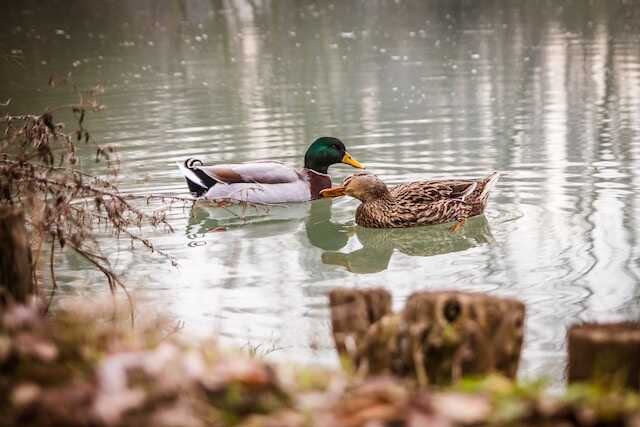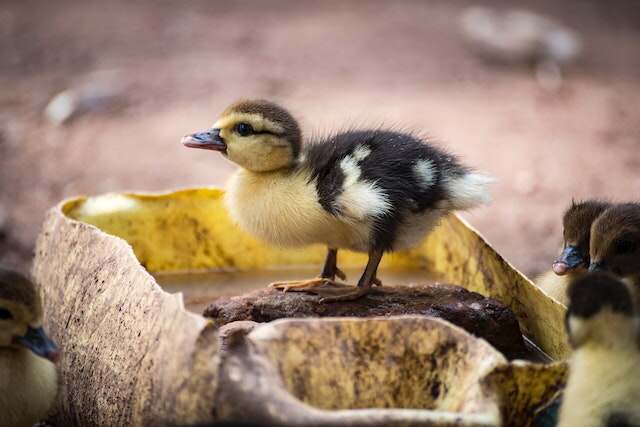Quack! Quack! Do ducks eat meat? You might be picturing a duck feasting on a juicy steak, but hold your quackers! The short answer is, well, not exactly what you might expect. In this feather-ruffling article, we’ll dive into the surprising dietary habits of our web-footed friends.
Get ready for a delightful journey through their omnivorous tendencies, fascinating adaptations, and the secrets behind their beak-to-tail feasting habits.
So, let’s waddle along and discover the savory truth about “Do Ducks Eat Meat?” Stick around to uncover the quack-tastic details that will make you see ducks in a whole new light!
Table of Contents
- 1 The Importance of Understanding a Duck’s Diet
- 2 What Do Ducks Eat?
- 3 The Meat-Eating Ducks
- 4 Why Do Ducks Eat Meat?
- 5 The Controversies Surrounding Duck Diets
- 6 Duck Diet Basics
- 7 Meat-Eating Ducks
- 8 Reasons Why Ducks Eat Meat
- 9 Controversies Surrounding Duck Diets
- 10 Conclusion
- 11 FAQs: Do Ducks Eat Meat?
- 11.1 Do ducks eat meat?
- 11.2 What do ducks eat in the wild?
- 11.3 Can ducks eat bread?
- 11.4 What should I feed ducks?
- 11.5 Can ducks eat fruits and vegetables?
- 11.6 Do ducks eat fish?
- 11.7 Can ducks eat chicken feed?
- 11.8 Are ducks herbivores or carnivores?
- 11.9 Do ducks eat mosquitoes?
- 11.10 What should I avoid feeding ducks?
- 12 Author
The Importance of Understanding a Duck’s Diet
Ducks are aquatic birds that belong to the family Anatidae and are found across the globe. They are omnivorous and have a varied diet consisting of plants, insects, small crustaceans, and snails. However, many people still wonder if ducks eat meat.
While the question may seem trivial at first glance, understanding a duck’s diet is critical for those who keep them as pets or hunt them for food.
For those who raise ducks as pets or in domestic settings, it is essential to provide them with a well-balanced diet that meets their nutritional needs.
A proper understanding of what ducks eat can help ensure that they receive all the necessary nutrients and remain healthy.
Additionally, knowing whether or not ducks eat meat can also help pet owners prevent unnecessary feedings or avoid feeding inappropriate foods.
Hunters must also know what ducks eat to increase the chances of catching prey in the wild. If hunters don’t understand what ducks eat, they may miss out on opportunities to lure them with bait or decoys.
It’s also important to note that some species of ducks prefer specific types of food over others.
Furthermore, it is crucial to understand how duck diets may vary depending on environmental factors such as location and seasonality.
For example, during breeding season when female ducks lay eggs and raise their young ones, they require more protein in their diets than other times of year.
Understanding these changes can improve hunting success rates while ensuring healthier living conditions for pet ducks.
Understanding a duck’s diet provides insight into its role in an ecosystem, besides being hunted for sport or kept as pets/companions.
Ducks play an essential role in natural systems by consuming insects harmful to crops while providing fertilizer through their droppings.
What Do Ducks Eat?
Most species of ducks are primarily herbivores and consume a diet consisting of plants, seeds, roots, and tubers. They also eat insects such as mosquitoes, flies, and ants. However, some ducks have been observed eating meat.
Domesticated ducks raised for commercial meat production are generally fed a diet of corn and soybean meal that is fortified with essential vitamins and minerals. They may also be given fishmeal to enhance the quality of their meat.
In the wild, mallards are known to feed on snails, crayfishes, small crustaceans like shrimp or crabs and some species of dabbling ducks consume small fish like killifish or mosquito fish. Interestingly,
Ducks can also feed on dead animals such as birds or rodents when they come across them in water bodies.
The Meat-Eating Ducks
While most species of ducks are herbivorous in nature, some do eat meat.
For example:
1. Harlequin duck – Known to consume small crustaceans like shrimp and crabs.
2. Mottled duck – Known to feed on crayfishes.
3. Mallard – Known to feed on snails.
4. Ruddy duck – Known to consume aquatic insects such as water beetles
5. Shoveler – Occasionally known for consuming aquatic insects.
Why Do Ducks Eat Meat?
The primary reason why ducks turn towards meat-based diets is the scarcity of plant-based foods in their environment during winter months or breeding seasons, when their nutritional requirement changes.
Ducks that live in ecosystems where there is intense competition for resources due to high population density may turn towards alternative food sources such as aquatic animals like tadpoles or frogs, leading them to develop carnivorous habits.
Climate change also seems to have an impact on the feeding behavior of waterfowl such as ducks; recent studies suggest that rising temperatures lead them towards more carnivorous diets due to changes in prey availability.
The Controversies Surrounding Duck Diets
The natural diet of ducks has become a topic of debate among environmentalists and animal rights activists.
Some argue that feeding ducks bread or other human food can be harmful to their health, while others believe that it’s cruel to feed omnivorous birds a vegetarian diet.
Furthermore, capturing ducks for meat production or keeping them as pets can lead to ethical and moral dilemmas.
It is essential to ensure that ducks are raised and treated humanely, whether they are being consumed as food or kept as companions.
Understanding what ducks eat is critical for those who keep them as pets or hunt them for food.
It also provides insight into their role in the ecosystem and how their diets impact the surrounding environment.
Duck Diet Basics
The Typical Duck Diet in the Wild
Ducks are omnivorous birds, which means they eat a wide variety of foods depending on their habitat and species. In the wild, they typically feed on a diet of plants, insects, and small aquatic animals such as snails and fish.
Some species of ducks have specialized diets and prefer to feed on certain types of food.
For example, mallards mainly eat seeds, while mergansers consume primarily fish. Ducks are known for their ability to dive into the water in search of food.
They use their bills to filter out small creatures from the mud at the bottom of ponds or rivers. They also feed on plants that grow in or around water sources, such as grasses or aquatic weeds.
Domesticated Duck Diets
Domesticated ducks may have slightly different diets compared to their wild counterparts due to environmental factors and what they are fed by their owners.
Farmers who keep ducks for egg production may feed them a diet enriched with nutrients such as protein and calcium to improve egg quality.
In addition to commercial feeds, domesticated ducks may also be given vegetables like lettuce, spinach or carrots as well as fruit like apples or melon rinds for variety in their diet.
The nutritional needs can vary based on age and sex; young ducklings require more protein than adult ducks, since they need it for growth.
However, pet duck owners should be aware that feeding ducks specific human foods is not always healthy for them – feeding them bread might seem harmless, but it contains little nutritional value and too much can cause serious health problems.
The Importance of Understanding Ducks’ Diets
Understanding what kinds of food wild or domesticated ducks need is important for those who keep these birds as pets or hunt them for food purposes.
A balanced diet helps maintain healthy immune systems and proper growth in ducklings. It’s important to make sure ducks get enough fat and protein, as these nutrients are essential for their survival.
Furthermore, knowing a duck’s preferred diet can help bird watchers identify different species of ducks based on their food choices.
Knowing what foods are available in a specific habitat can also help conservationists protect the environment so that the natural food supply is not destroyed.
Conclusion: Ducks – Omnivores with Varied Diets
Ducks have highly varied diets, ranging from plants to insects and small aquatic animals.
Wild ducks tend to feed on what is available in their natural habitat, while domesticated ducks can be fed commercial feeds enriched with nutrients, vegetables or fruit in moderation.
Understanding a duck’s dietary needs helps ensure that they receive the proper nutrients for growth and healthy development, whether they live in the wild or with humans.
Meat-Eating Ducks
Ducks are commonly known to be herbivores, consuming mostly plants, insects, and small aquatic animals.
However, there are some species of ducks that have been observed eating meat. These “meat-eating” ducks can consume small fish or even other birds.
The Concept of Meat-Eating Ducks
The idea of ducks eating meat may seem surprising or even unnatural to some people. However, it is important to remember that ducks are opportunistic feeders and will consume whatever food sources are available to them in their environment.
Additionally, the evolution of different duck species has led to varied dietary habits. While the majority of duck species remain herbivores, there are a handful that have been observed consuming meat in the wild.
Some experts believe that this is an adaptation to specific ecological niches where food scarcity may be an issue or competition for resources with other waterfowl is high.
Examples of Meat-Eating Duck Species
One example of a meat-eating duck species is the merganser. These diving ducks have long, serrated bills that allow them to catch and eat fish. They also consume crayfish and other aquatic invertebrates.
Another example is the northern shoveler, which has a distinctive bill with fine comb-like structures on its edges. This allows them to filter small crustaceans like water fleas from the water as they swim with their bills open.
Some species of dabbling ducks have been observed consuming insects as well as small aquatic animals like snails and freshwater mussels.
The mallard duck is one such example; while they mainly feed on plants, they can occasionally be seen eating insects and other small animals when plant food sources are scarce.
The Implications of Meat-Eating Ducks
Understanding which duck species consume meat is important for those who keep ducks as pets or hunt them for food. It can also have implications for conservation efforts and the management of wetland habitats.
For example, if climate change causes habitat loss and alters ecosystems in ways that reduce the availability of plant-based food sources for certain duck species, we may see more meat-eating behaviors in the future.
While some people may find it concerning or even unethical for ducks to consume meat, it is important to remember that these are natural behaviors that have evolved over time.
Additionally, human intervention such as feeding domesticated ducks can impact their natural dietary habits and potentially lead to health problems.
Reasons Why Ducks Eat Meat
Survival Tactics: Eating Meat to Survive
Ducks, like other animals, turn to a carnivorous diet when they can’t find enough plant-based food sources. This is especially true during times of drought or when other factors limit their access to vegetation.
Such situations may occur in both the wild and domesticated settings, causing ducks to resort to meat-eating behavior as a survival tactic.
In addition, some species of ducks face competition for resources with other waterfowl in their habitat. For instance, mallards are known to compete with coots (aquatic birds) for access to aquatic plants.
In such cases, where the plant-based food is scarce and there’s intense competition for resources, ducks may turn towards eating small fish or insects.
Climate Change and Habitat Destruction: Contributing Factors
As the climate changes and natural habitats continue being destroyed due to human activities such as pollution and deforestation, ducks’ ecosystems are being significantly disrupted.
Climate change disrupts the breeding cycle of aquatic animals that form part of a duck’s diet (such as fish), reducing their numbers. As a result, ducks have fewer options for food.
The destruction of wetland habitats also negatively impacts duck populations, since these areas offer abundant vegetation and animal life necessary for their survival.
Ducks that live in areas that have lost wetlands may have no alternative but to turn towards eating meat.
The Role of Human Intervention
Human intervention has also been known to contribute towards meat-eating behaviors among domesticated ducks. Many people keep pet ducks and feed them a variety of foods that contain animal proteins besides plants alone.
While feeding domesticated birds with animal protein isn’t necessarily harmful from time-to-time, it can be detrimental if overdone since it can lead them away from their natural diet, which is fundamental in maintaining their health and well-being.
It’s therefore essential to balance their diet and provide them with the necessary supplements to ensure they’re getting all the nutrients they need.
Meat-Eating Ducks: A Natural Behavior
Several duck species, such as mergansers, are fundamentally carnivorous, meaning that meat forms a significant part of their natural diet.
These ducks have specialized bills that allow them to catch fish easily. The bills are thin, sharp-edged, and serrated so that the fish can’t escape once caught.
Meat-eating ducks have evolved into this natural behavior over time due to different factors such as the availability of plant-based foods in their habitats or other environmental influences.
For these ducks, meat is a critical source of nutrition that helps them survive in the wild.
Controversies Surrounding Duck Diets
Exploring the Natural and Ethical Aspects of Ducks Eating Meat
While it is natural for some duck species to consume meat, there are debates surrounding whether or not it is ethical to feed them such a diet in captivity.
The main argument against feeding ducks meat-based diets is that they are primarily herbivores in the wild, and their digestive systems may not be able to process high amounts of animal proteins.
This can lead to health issues such as liver damage or kidney problems. On the other hand, advocates for feeding ducks meat argue that it can provide vital nutrients that may not be found in a strictly plant-based diet.
For example, small fish caught by ducks in the wild are rich sources of omega-3 fatty acids and protein. Additionally, some hunters may believe that feeding their game birds a more varied diet can result in better-tasting meat.
Impact of Human Intervention on Duck Diets
Human intervention can greatly impact a duck’s natural diet. Domesticated ducks often receive commercial feed from their owners, which typically consists of grains and other plant-based ingredients.
This can cause health problems if their diets lack essential nutrients or contain high amounts of carbohydrates that lead to obesity.
Feeding domesticated ducks a meat-based diet could lead to similar issues as those mentioned above: their digestive systems may not be equipped to handle large amounts of animal proteins.
Furthermore, human activity such as habitat destruction or pollution can force wild ducks to adapt their diets due to changes in food availability.
Climate change has also been linked with shifts in duck behavior; for example, studies suggest that rising temperatures could lead more species towards carnivorous tendencies as aquatic plants become less abundant.
Conclusion
The debate over whether or not it is ethical for humans to feed ducks a meat-based diet remains ongoing. While it is natural for some species to consume meat, concerns about the health consequences of such a diet cannot be ignored.
Domesticated ducks may require specific nutritional needs that are not met by a purely plant-based diet, but feeding them too much animal protein can lead to health problems.
Ultimately, it is important for those who own or hunt ducks to research and understand their dietary needs in order to ensure their well-being.
As human activity continues to impact the natural world, monitoring changes in duck behavior and adapting management strategies accordingly will be increasingly important.
By taking these steps, we can help preserve the unique behaviors and experiences that make these fascinating birds so beloved by many.
FAQs: Do Ducks Eat Meat?
Do ducks eat meat?
Yes, ducks are omnivorous and can consume meat, although it is not a significant part of their diet.
What do ducks eat in the wild?
In the wild, ducks primarily feed on aquatic plants, seeds, insects, small invertebrates, and sometimes small fish or amphibians.
Can ducks eat bread?
While ducks are often fed bread by humans, it is not a nutritious or natural food for them and should be avoided. A healthier diet for ducks includes grains, vegetables, and insects.
What should I feed ducks?
If you want to feed ducks, suitable foods include cracked corn, peas, lettuce, oats, seeds, and duck pellets. Offering ducks a well-rounded and diverse diet is crucial for their overall health and nutrition.
Can ducks eat fruits and vegetables?
Yes, ducks can eat fruits and vegetables such as lettuce, peas, corn, and watermelon. However, it is essential to avoid feeding them spoiled or moldy food.
Do ducks eat fish?
Ducks may eat small fish if they come across them while foraging in the water. However, fish is not a primary food source for ducks.
Can ducks eat chicken feed?
Ducklings can eat chicken starter feed, but as they grow, they require a diet formulated specifically for ducks, as their nutritional needs differ from chickens.
Are ducks herbivores or carnivores?
Ducks are classified as omnivores since their diet consists of both plant matter and small animals.
Do ducks eat mosquitoes?
Ducks will consume mosquitoes and other small insects while foraging in their natural habitat, making them beneficial for controlling insect populations.
What should I avoid feeding ducks?
Avoid feeding ducks foods like bread, crackers, chips, and other processed human foods. These items lack nutritional value and can be harmful to ducks’ health.

